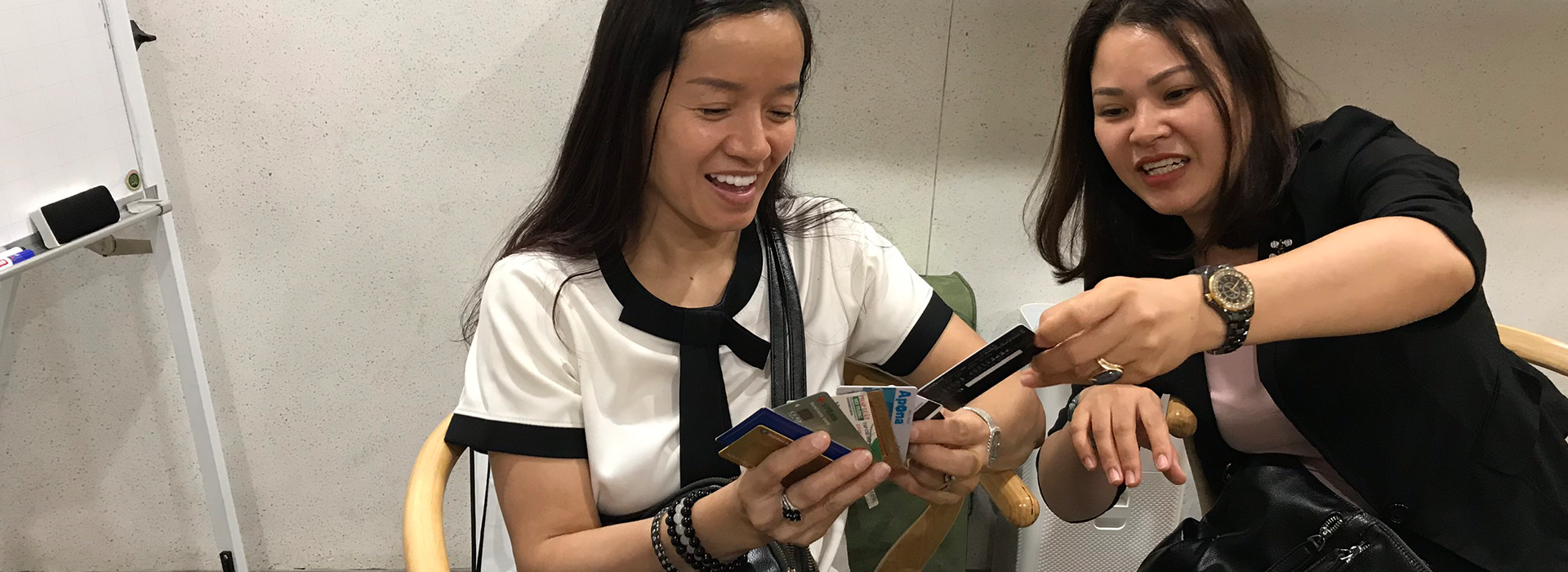
Building a network to help generations of woman entrepreneurs in Vietnam
September 21, 2020 | By Maggie SiegerDirect support and training are helping women-owned businesses stay afloat amid the pandemic, but financial tools customized for women can help them thrive.
Nguyen Huong Mai launched her own business in Hanoi in 2017 after working two decades for a state-owned tourism company. Within a year, her travel company, Saigon Today Communication, was earning nearly $1.3 million per year. She opened two new restaurants in Hanoi and invested in a small hotel. Revenues jumped to $5.2 million in 2019.
Then, on Jan. 23, news of a strange virus in Wuhan, China, led to mass cancelations by Chinese customers. Five tours and 300 rooms were canceled in one day, followed quickly by a prohibition on all travel and closing of all nonessential businesses in Vietnam. From January through June, Mai’s company earned less than one-tenth of its 2019 revenue.
Mai hoped eager-to-travel domestic customers would help her recover this summer when the travel restrictions and social distancing requirements were eased. But a second wave of infections in late July made her situation even more precarious. “I was completely knocked down as the company had no revenue for months,” she says. “I was stressed and traumatized.”
Nearly 80% of Vietnamese businesses rank the pandemic as either a serious or severe threat to their survival, according to a report by the Centre for Social Initiatives Promotion. As one of the top 20 countries globally for woman entrepreneurs — ahead of many European countries — the shutdown impacted an especially large number of women-owned businesses.
Micro-, small- and medium-sized businesses account for roughly 95% of all businesses in Vietnam. “It’s these smaller businesses and societies’ most vulnerable people that have tended to be hit hardest by recent events,” says Mastercard country manager Winnie Wong.
And while women own 27% of businesses in Vietnam, even before the pandemic they faced gender inequalities that meant they struggled to find the capital, training and financial tools necessary to grow those businesses. Since 1989, the international humanitarian agency CARE has been working in Vietnam to address these deeply rooted structural causes of poverty and injustice. The nonprofit, which reaches nearly 70 million people in 100 countries, uses community-based efforts to improve basic education, increase access to quality health care and expand economic opportunity for all, with a special focus on women.
This year, because of COVID-19, the Mastercard Center for Inclusive Growth collaborated with CARE to provide $150,000 in emergency humanitarian relief to woman entrepreneurs in Vietnam to help them build pathways to recovery and eventual financial security.
Additionally, the center, through the IGNITE initiative led by CARE, targets 50,000 “strivers” such as Mai. Strivers are entrepreneurs who employ a two- to 10-person staff and are looking to grow their business and hire more workers — but often lack appropriate financing.
To sustain and grow women entrepreneurship and help them find success and financial stability through new opportunities, CARE currently is surveying woman entrepreneurs to better understand their specific financial needs. That will allow partners VPBank and fintech Canal Circle to adapt existing financial products and services to better meet those needs with products such as simplified loan applications and digital solutions for customer acquisition.
“Woman entrepreneurs need to be aware that there is a digital tool available for every single business requirement,” says Evelyn Ha Nguyen, CEO of Canal Circle. “COVID-19 has demonstrated that maintaining relevant customer information on a digital tool such as CRM software can help businesses connect with customers remotely and serve them better.”
These products, designed to scale, transform and help businesses prosper, will provide women with better access to working capital, savings and insurance, particularly as they expand. The initiative also includes business skills training, coaching and mentoring for woman entrepreneurs.
It’s these small, woman-owned companies that will be on the frontlines of economic recovery as Vietnam emerges from the lockdown, said Dang Chau Giang, head of marketing and care at VPBank. “Woman entrepreneurs will need to take advantage of loan options specially created to help with the rebooting of the economy,” she says.
In an effort to make sure women-owned businesses thrive worldwide, the Mastercard Center for Inclusive Growth finalized a three-year partnership in October 2019 with CARE USA to bring 3.9 million underserved micro- and small businesses in Vietnam, as well as Peru and Pakistan, into the digital economy. The program will equip the businesses — at least 50% of which will be woman-owned or operated — with the tools, training, education, products and services necessary to formalize and grow.
“By investing in woman entrepreneurs,” Wong says, “we believe that we can accelerate a kind of sustainable growth that is inclusive of everyone, everywhere.”